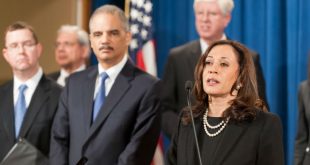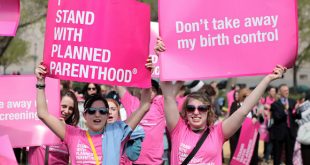 Raising the minimum wage might sound like a noble idea. Who wouldn’t want more money to pay their bills and buy the things they need? The trouble is, raising the minimum wage isn’t an isolated act. Forcing companies in the business of making money (and taking risks) to pay employees more than their skills are worth leads to unintended consequences. Everything has a price, and even if it’s labeled “free,” somebody has to pay for it.
Raising the minimum wage might sound like a noble idea. Who wouldn’t want more money to pay their bills and buy the things they need? The trouble is, raising the minimum wage isn’t an isolated act. Forcing companies in the business of making money (and taking risks) to pay employees more than their skills are worth leads to unintended consequences. Everything has a price, and even if it’s labeled “free,” somebody has to pay for it.
Proponents are citing Seattle’s phased-in minimum wage increase as a model for a national increase. The rate will go up to $15 per hour over seven years.
“With congressional action stalled, a grassroots campaign to lift basic pay for all workers is picking up momentum at city halls and state legislatures around the country,” Black Enterprise‘s Kevin L. Clark writes. “Most notably, San Diego and Oakland, California are attempting to spread the word about raising the nation’s minimum wage rate to at least $10.10 per hour. While the GOP is on the record saying an increase on the federal level will only hurt the economy, President Barack Obama continues to rally support through the Internet with #1010Means campaign which highlights the benefits of raising the minimum wage.”
Star Parker wrote that increasing the minimum wage would result in the opposite of what proponents want: a corresponding increase in unemployment and higher priced goods and services. Ron Haskins, co-director of the Center on Children and Families at the Brookings Institution, noted that declining participation in the workforce was one of the factors that caused poverty. Between 1980 and 2009, participation among men declined from 74.2 percent to 67.6 percent. The numbers are worse for young black men. Their rate declined from 60.9 percent in 1980 to 46.9 percent in 2009.
Parker wrote: “Despite the dramatic expansion of government spending on poverty programs over the years, there has been little change in the overall rate of poverty. What’s key in alleviating poverty? Individual initiative and personal responsibility. According to Haskins, following three rules reduces to 2 percent the chances that an individual will wind up in poverty and increases to 72 percent their chances of winding up a middle class wage earner.”
This tried–and-true formula–finishing high school, working full time, and waiting until 21 before getting married and having a baby–reduces the risk of poverty. In fact, breaking the rules leads to a 77 percent chance of ending up poor.
We’re all moral agents with the power to shape our lives. Our actions have consequences. Relying on the government as a cure-all only increases government intrusion into our lives and stifles economic growth.
Photo credit: The All-Nite Images (Creative Commons) – Some rights reserved
 Black Community News News and Commentary for Christians
Black Community News News and Commentary for Christians



